Technology from waste to green agricultural products
From the idea of turning livestock waste into resources, Viet Farm Company Limited in Xuan Loc has researched and perfected the process of processing manure and chicken carcasses into organic fertilizer, with a current capacity of up to 500 tons/day. Thanks to that, the problem of environmental pollution in livestock farming is solved, and at the same time, farm owners have a stable source of income.
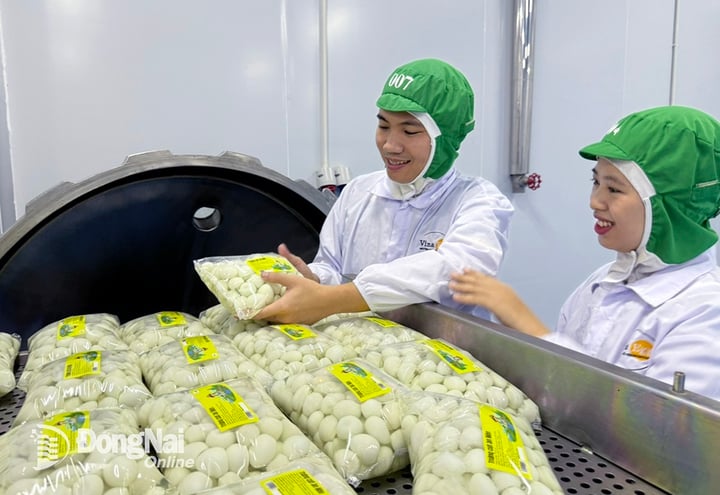
VINAEGG Company with unique model of processing sterilized instant quail eggs according to FSSC 22000 standard.
The company also invested in 13 hectares of greenhouses to grow melons and vegetables according to GlobalGAP standards. Notably, many of the equipment in the greenhouses are manufactured domestically, such as automatic watering robots and solar-powered cooling systems. Thanks to this innovation, production costs have been significantly reduced, making prices more competitive.
In Tan Phu district, VINAEGG Company of young engineer Ngo Minh Tuyen has become a unique model when processing sterilized quail eggs according to FSSC 22000 standard, one of the most stringent international standards. Every day, the almost completely automated production line produces 600,000 quail eggs, exported to Japan, Europe, and the US. "We design our own egg peeling machine, saving billions of dong compared to importing, while proactively maintaining, reducing depreciation, and lowering costs," Tuyen shared.
Global value chain from Dong Nai
The success of small and medium enterprises creates a foundation for large corporations to consider Dong Nai as a strategic destination. Nestlé invested more than 900 million USD, setting up many coffee processing factories in Bien Hoa, supplying to 35 countries. Koyu & Unitek Company (Loteco Industrial Park) slaughters and processes 1 million chickens per month, exporting 300-350 tons to Japan. CP, Cargill, Masan , De Heus, Japfa... corporations also built factories and farms, creating a closed production - processing - consumption chain.
Ms. Nguyen Thi Thanh Tam, a member of the Board of Directors of GC Food Company, said that the company has built a modern factory in Trang Bom, connecting with farmers to grow aloe vera and coconut jelly to supply for export. "We consider farmers as partners in the chain. With technology and international standards, the products can go far," Ms. Tam said.
Thanks to the strong participation of enterprises, the value of high-tech agricultural products in Dong Nai has reached more than 38 trillion VND, accounting for over 51% of the total value of key agricultural products, exceeding the 2025 target ahead of schedule. The province currently has 127 concentrated production areas of nearly 41,000 hectares and 419 high-tech agricultural models.
Agricultural digitalization enterprise
Enterprises play a central role in the digital transformation of agriculture. The livestock industry has applied Te-Food software for management and traceability. To date, more than 1,758 farms and 1,187 facilities have participated, with 121,000 pigs traced in the first 5 months of 2025.
Pioneering enterprises applying IoT to farming: environmental monitoring system, automatic irrigation and fertilization controlled by smartphone; farm management software; electronic growing area codes for export. The province has 203 growing area codes with 29,000 hectares eligible for export to the US, EU, Australia, China... This is the "technology passport" for Dong Nai agricultural products.
In particular, many businesses also support farmers in bringing agricultural products to e-commerce platforms and training them in digital skills to "bring the market to the garden". With just a smartphone, farmers can now directly sell to consumers nationwide.
Innovative Agriculture
Dong Nai currently has more than 328 high-tech agricultural enterprises, of which 7 are completing their dossiers to be officially recognized. They not only create products that meet international standards but also lead changes in rural areas, including: Building green, circular production chains, reducing emissions; Supporting farmers in technology transfer, providing seeds and techniques; Investing in research and development, applying artificial intelligence (AI), and automation in production.
According to Mr. Dang Kim Son, Permanent Chairman of the CNC Agricultural Enterprises Association, priority policies are needed for large enterprises to act as the core of the spread, attracting small enterprises, cooperatives, and farmers to participate. "Digital agriculture cannot rely solely on individual farming households, but needs locomotives to lead," Mr. Son shared.
Center for Science and Technology Communication
Source: https://mst.gov.vn/doanh-nghiep-dong-nai-dau-tau-so-dan-dat-nong-nghiep-cong-nghe-cao-197251109210644229.htm










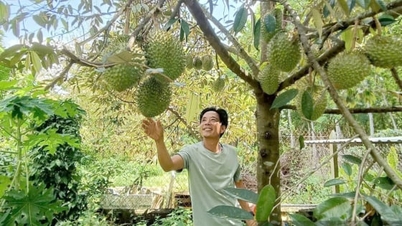

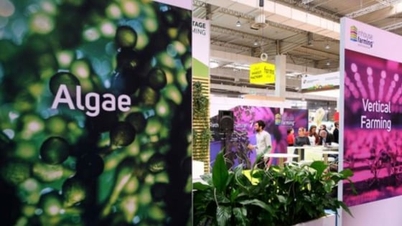


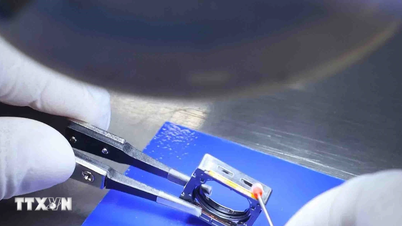

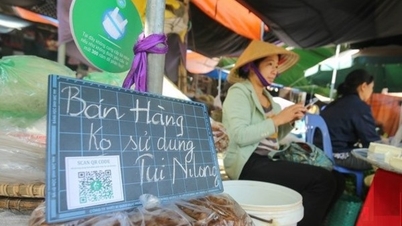





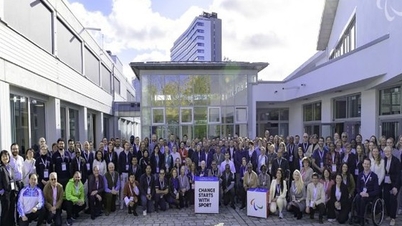
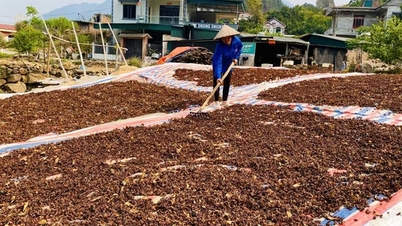







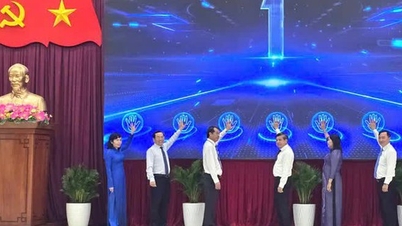








































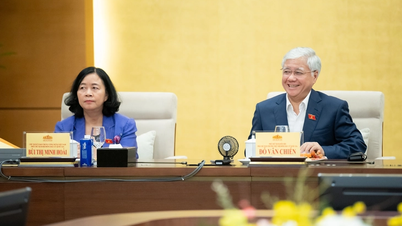








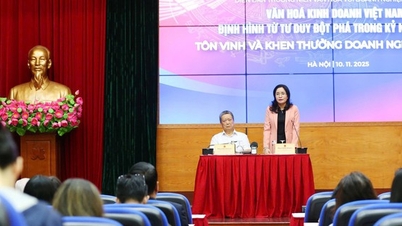
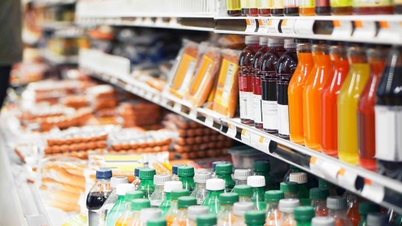



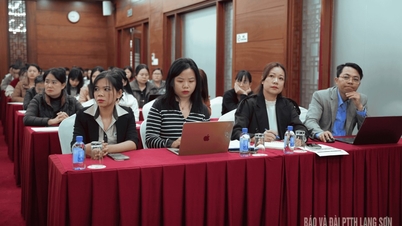


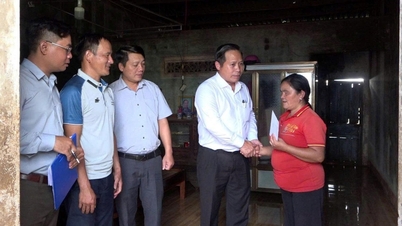





![Dong Nai OCOP transition: [Article 3] Linking tourism with OCOP product consumption](https://vphoto.vietnam.vn/thumb/402x226/vietnam/resource/IMAGE/2025/11/10/1762739199309_1324-2740-7_n-162543_981.jpeg)








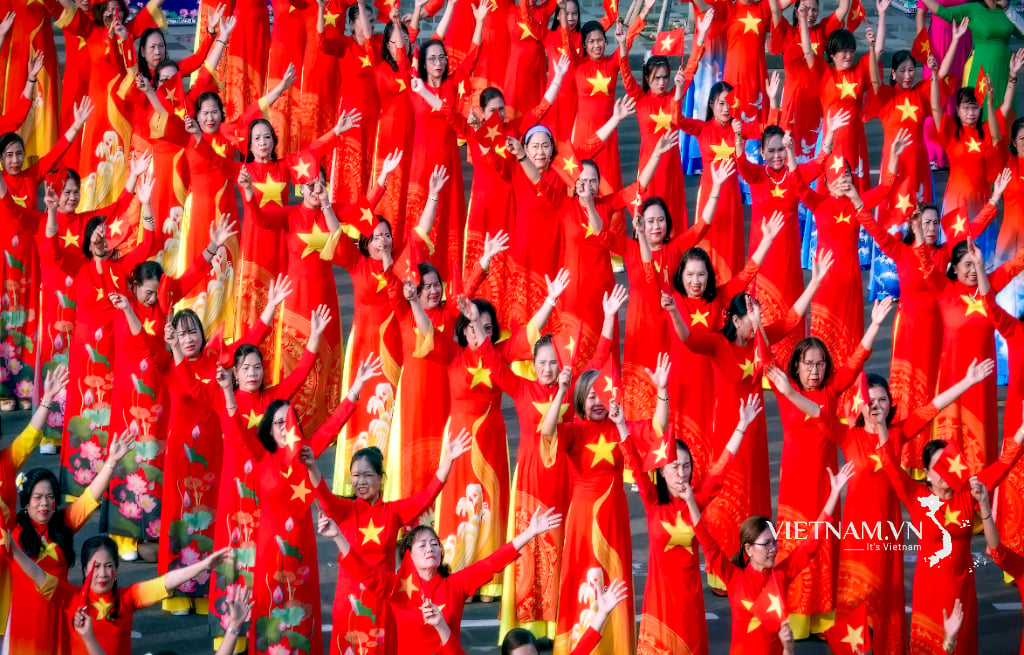

Comment (0)